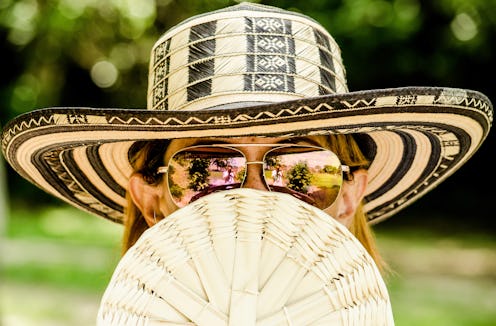
These days, with everything we now know about sun damage and skin cancer, it would be a little silly (actually, a lot silly) not to protect yourself before exposing your skin to sunshine. There are actually other things to remember about your skin before you go into the sun, that you may have forgotten or might not have known about in the first place.
Think of your skin like a brand new, expensive car that you’ve lusted after for ages — you’d probably read the handbook or at least ask your car salesperson a few questions, to learn a bit about how it functions before taking it on a road trip, right? With this in mind, can you honestly say you know all of the skin safety precautions you need to take before spending a day in the sun? At the end of the day, a car is a possession that can be replaced if you accidentally ruin it, whereas you only get the skin you’re in. You can’t upgrade it or swap it out for a different model if you damage it.
Besides, your skin is an organ and needs to be treated as such, with care and respect. Just because you often can’t see sun damage, doesn’t mean that it ceases to exist. In order to find out the facts, I spoke to board-certified dermatologist Dr. Janet Prystowsky, about the important things to remember about your skin before you go into the sun.
"If you go out unprotected on a sunny day," says Dr. Prystowsky in an email to Bustle, "a few things will happen. You will tan or burn, you will increase your risk of skin cancer, and you will speed up your skin’s aging process."
"Remember that tanning is still skin damage," Dr. Prystowsky elaborates, "there’s no such thing as a safe tan or a base tan. Even though a tan may look good to you now, the wrinkles that come with it won’t!" If you want healthy skin when you're older, it's best to quit tanning and pick up a different hobby instead.
"If you’re worried about synthesizing enough Vitamin D, 20 minutes of unprotected sunshine is enough. And even still, you can just take a Vitamin D supplement instead," advises Dr. Prystowsky.
"I recommend a broad spectrum, mineral based, SPF 30-50 sunscreen. Broad spectrum means that your sunscreen blocks both UVA and UVB rays. Even though UVA rays do not cause visible sun damage, they can promote aging and skin cancer," she explains.
"Mineral based sunscreens are different than chemical sunscreens in that they sit on top of your skin instead of soaking in," says Dr. Prystowsky, "chemical sunscreens can be absorbed into your bloodstream. The effects of which are not fully understood at the moment. Reapply every two hours, after swimming, or after heavy exercise."
"There are a few areas that people tend to forget when applying sunscreen," says Dr. Prystowsky. She explains these include, "Your part line (it’s possible to sunburn on your scalp, especially if your hair gets wet and clumps), ankles, feet, ears, the back of your hands, and lips."
Don't forget that it's not worth going out into the sun unprotected, try to remember the common areas folks forget to apply sunscreen, and if you're in any doubt about your Vitamin D intake, consult your doctor about taking a supplement!
Images: Carlos Alberto Gómez Iñiguez (1), Corey O'Brien (1), Tomas Salas (1), Meg Sanchez (1) /Unsplash